Marillion - Interview
by John Clarkson
published: 16 / 6 / 2007
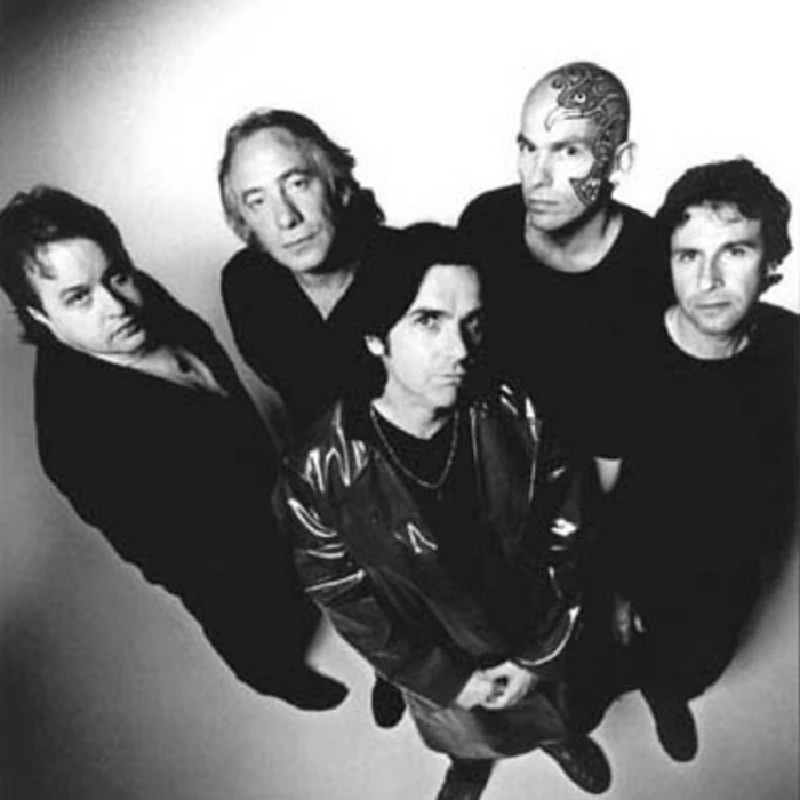
intro
Aylesbury-based rockers Marillion recently toured Britain with their fourteenth album, 'Somewhere Else'. John Clarkson meets with bassist Pete Trewavas to talk to him about and his often under valued group's strong links with their fanbase
In 1988 Marillion looked as if they were finished. The prog rock band, which had formed in Aylesbury in Buckinghamshire in the early 80's, had had a prolific five years. Their first two albums, 'Script for a Jester's Tear' (1983) and 'Fugazi' (1984) both entered the Top 10. The group had had minor chart hits before, but when 'Kayleigh', an anthemic ballad about its charismatic Scottish singer Fish's first lost love, and the first single from their third album 'Misplaced Childhood', came out in 1985 it climbed to No. 2 in the singles chart. When 'Misplaced Childhood', a wordy concept record about childhood innocence lost and regained, arrived a month later, it shot to No 1. Its follow-up, 1987's ' Clutching at Straws’, was another bestseller, reaching No. 2 in the album chart. Telling of Fish’s battle against drink and drugs and his weariness of touring and living in hotels, it, however, hinted that all was not well within Marillion, and, as the band started work on demos the following year for their fifth album ‘Season’s End’, Fish, blaming irreconcilable creative and lyrical differences with the rest of the group, abruptly quit. Prone to wearing face paint and flowing rainbow-coloured outfits, and producing pints of beer from behind the drum kit with which he would gregariously toast the audience before gulping them down, the 6 ‘5’ Fish, who came originally from Dalkeith in Midlothian just outside Edinburgh, was a flamboyant figure on stage. Open in conversation whether talking about his experiences in the past with prostitutes, his love for a German nightclub hostess whom he had met in Berlin while recording 'Misplaced Childhood' and would eventually marry, or his problems with cocaine and frequent drunken scrapes, he was also an erudite and mercurial interviewee and, larger-than-life, had become the central focus for nearly all of the band's publicity. With the other members of the group, their contributions under-rated, often seeming little more than bit players, the announcement of his departure spelled to many the end of the band and most music critics and a lot of their fans promptly wrote Marillion off. As Fish beat a retreat back to Scotland where he would set up base in Haddington 15 miles east of Edinburgh and eventually start a solo career, the remaining members of the band-guitarist Steve Rothery, bass player Pete Trewavas, drummer Ian Mosley and keyboardist Mark Kelly- elected, however, to carry on. Marillion re-emerged in 1989 with a new singer Steve Hogarth and the delayed 'Season's End', for which the band had already written most of the music during the Fish era and to which Hogarth with the aid of co-writer John Helmer contributed the lyrics. It proved a moderate success, and two singles from it, 'Hooks from You' and 'Easter', brought the band back into the Top 40. A second album, the more commercial-sounding and poppy 'Holidays in Eden', upon which Hogarth this time took sole charge of the lyrics, produced further hits with 'Dry Land' and 'Cover My Eyes' in 1991 and also did moderately well. 'Brave', Marillion's third album with Steve Hogarth, a sprawling double album about a girl standing above a river on a bridge contemplating suicide, was less successful when it initially came out in 1994. Combining sweeping symphonics with a more regular rock sound, it, however, showed the realigned group's increasing confidence and widening scope, and has since gone on to be seen as one of the classic albums of the prog rock genre. Replacing a singer in a band rarely has a happy outcome, the new front man often seeming like a pale imitation of the original. While Marillion have never quite reached in sales again the heights of 'Kayleigh' and 'Misplaced Childhood', part of the reason for their continued success has been that Hogarth has never tried to emulate Fish, instead from the beginning putting his own seal on the band. A more unassuming but more vocally fluid character than his predecessor, Hogarth, who is from the Lake District originally and who had previously played keyboards and sung with unknowns the Europeans, also comes from a different school of thought in his songwriting. His lyrics are less garrulous but also more worldly-concerned, often focusing on environmental concerns, the Third World and mental health issues, and push for a better society. After 'Brave', Marillion put out in 1995 'Afraid to Sunlight',their last album on EMI which had released all their albums since 'Script for a Jester's Tear'. The group then switched to Castle Records to record their next three albums, 'This Strange Engine' (1997), 'Radiation' (1998) and 'Marillion-Com' (2001), before launching with their twelfth album, 'Anoraknophobia', their own Intact label in 2001, which they run from the Racket Club, their own studio and offices which is based near Aylesbury. They have since gone on to release on Intact another two albums, 'Marbles' (2004) and this year's 'Somewhere Else'. With 'Anorakophobia' Marillion took the unusual step of asking their fans to sponsor it by pre-ordering it 12 months before its release, so that they could pay for its recording costs. When 12, 000 people signed up, they did the same again with 'Marbles', a double CD, but this time channelled the money into a campaign fund to promote its launch. Since 'Marillion-Com', the band have increasingly stepped away from their prog rock roots, incorporating on the albums since then dance and dub beats, and elements of country, folk and indie-rock. 'Somewhere Else' finds the band far removed from their beginnings and the early days of 'Script for a Jester's Tear' and 'Fugazi', in which they regularly drew comparisons with Peter Gabriel-era Genesis, and has more in common with Coldplay and Talk Talk. Essentially a post-rock album, it is a record of sweeping, majestic atmospherics and brooding thought. Taking in part its name from the break-up since 'Marbles' of Hogarth's marriage and his relationship with a new girlfriend, its tracks include the hazy, discordant break-up song 'The Other Half' ; 'Most Toys', a fist-in-the-air gutteral garage rocker and attack on consumer society ; the soaring, organic title track ; 'The Last Century of Man', a scathing condemnation of British and American policy, and acoustic closer 'Faith'. 25 years on since they first formed and 14 albums down the line, Marillion are a unique institution in British rock. Rarely played on radio because they tend not to write three minute pop songs, they nevertheless manage still to regularly generate Top 20 hits, most recently in 2004 with 'Don't Hurt Yourself' and 'You're Gone', the latter of which made No. 7. They often find themselves dismissed as a group of 70's-style pomp rockers, but are in fact one of the most diverse bands around. Frequently under-valued and misunderstood, they nevertheless regularly sell out 1500 and 2000 capacity venues, and have an especially loyal worldwide fan base, some of whom have hung on since the Fish-era, others who are more recent and who as 'Anaroknophobia' and 'Marbles' both proved are prepared to invest considerable amounts of money to the group. Pennyblackmusic met with Pete Trewavas before a gig at the ABC in Glasgow on the British leg of their latest tour and spoke to him about 'Somewhere Else' and the chemistry of the band. PB : There has been a long gap between 'Somewhere Else' and 'Marbles'. It has been three years, which in fact has been the biggest gap between Marillion albums. Why has it taken so long for this album to come out ? What have you been doing during that time ? PT : We toured it. We did quite an extensive tour and then we went into the studio with a view to releasing some EPs. We started work on a few songs which we had kicking around, with Mike Hunter who we had used before as a producer, and we got to the point of releasing an EP around about the end of '05, the beginning of '06. We then realised that as it was all going to be new music it would probably do quite well and chart -Our fans would want to buy it- but then we wouldn’t have anything to follow it up with. Whatever we had achieved with a chart position from an EP would be completely lost by having to go back into the studio, so we decided to scrap that idea and to start work on a new album. We started jamming around in our studio as we do and that was the starting point for 'Somewhere Else'. PB : You don't come into the studio with any preconceptions and songs written in advance, do you ? It is all worked out in there, isn't it ? PT : Yes, we have a completely blank canvas. The only rule we have is not to repeat ourselves, so we throw away far more good and bad material for whatever reason than we use. PB : You have been going for a long time now, 25 years. Has it become more difficult then to keep doing new things ? PT : Yeah, it has become a lot harder, although I have to say with this album it wasn't like that. I thought it was going to be very hard to follow 'Marbles'. I thought 'Marbles' was a tremendous volume of work. It was a great album. It was very well received both by the fans and the media. We got play listed. We got radio play. We got in the charts in Holland and Britain. I thought it was going to be hard to follow that, but in fact we ended up writing lots of songs and having more songs, far more songs than we needed for the album. We then had to choose whether we were going to decide which songs we wanted to finish and record, or whether we would try and record them all and then pick and choose. We decided to do the latter. We decided that we would try to record them all. We thought that we would be able to record most of the songs to a level where we could make a good decision about which songs would sit well together on the LP and that is what we did. It took from when we started this album until when we finished it probably about 8 or 9 months, which was actually fairly quick really. PB : You have got all these songs left over. You're already advertising on your website the next album which is going to come out next year. Are a lot of those songs which didn't make 'Somewhere Else' going to come out on that ? PT : Yes. For example, two of my favourite songs from the writing sessions aren't on 'Somewhere Else'. They are not just leftovers. We've got some very good, very strong songs. We just decided that we didn't want to do a double album. Some of the songs we recorded then will appear on the next album and we have also been recording some other new material for it. The title of 'Somewhere Else' shows the mind set really behind the album. We wanted to go completely somewhere else with the songs in the way we recorded and with the producer. Pretty much everything else about this album is the other way around to 'Marbles', which is very cool. One of the things that Mike was keen to do was to try to capture what we do live. PB : Did he just let the tape then run a lot of the time ? PT : A lot of the time he was doing that and we got to a stage where we were jamming and writing as we were recording. In the morning he would just start the machines rolling and sometimes we would be working on arrangements for songs and at other times it would be on something new which we had discovered. It is a pretty cool way of working. If you listen to 'Sing Like a Baby' and 'The Other Half' there is an energy there which doesn't appear on the other albums. PB : It is an album which has seemed to divide your fans. If you look at some of the fan reviews on Amazon some think it is the best album that the band has ever done and others are much more sceptical about it. Is that something you have come to expect with each new release ? PT : Yes, definitely. Time tells that is usually the way that it is. Although you can tie a few loose strings together with this album, 'Somewhere Else' isn't a concept album. The songs are individual, so it has got a very different feel and look to something like 'Marbles'. 'Marbles' sat very well with a lot of our fans, so I can understand why some of them might not like this album so much. PB : The band has said that every new album is a reaction to the last album... PT : It is a knee jerk reaction that we have. I think that it is good to keep looking forward. I have always respected bands like Radiohead and U2 in the way that they won't just sit in a mould. There are some bands that have been around even longer than us. They have their identity. They have their sound and that is fine, but it is not what we are in it for. We want to be creative musically. We want to be a challenge. We are in a good place at the moment. Obviously we want to be in a better place, but that's human nature, isn't it ? We would love to be selling a few more records. We would love to be played on radio a bit more. We would love to have a wider audience. I think that there are people sitting at home with Coldplay and Floyd and maybe a bit of Radiohead or Keane or the Kooks and who have probably never heard of Marillion or don't choose to listen to us because they think they know what we are. But if they listened to the last two or threee albums they would probably love us. It is a bit of a battle. It is a bit frustrating, but in terms of where we I think we are in a great place. PB : Marillion has made very innovative use of the internet. Both 'Marbles' and 'Anorakophobia' were both sponsored by your fans. You haven't done that with 'Somewhere Else'. Why have you decided to give it a rest on this occasion ? PT : We were actually split actually about what we should do and how we should do it on this album. We didn't, however, feel that we absolutely needed to do that with this album and there was also this feeling, a sense of we didn't want to keep going back to our fans cap in hand and saying "Actually, we could really do with a little bit more of your money in advance if that is okay." A lot of our fans, however, missed the fact that there isn't a special edition or there isn't something that they can't get their teeth into because they really, really got behind the idea of getting more involved in their band. PB : Your fans seem to trust you. There seems to be an incredible amount of trust there. PT : There's an amazing amount of faith there. PB : That must be incredibly flattering at one level. Is it terrifying too ? PT : No, everyone asks that. Everyone thinks that must be some kind of burden on us and that it must be putting a lot of pressure on us to perform and to write something that we think our fans will like. Actually it is the other way around really. We're not lazy, but we do like to please ourselves. There are lots of ways in which our fans are really helpful, but when it comes to how we write and what we write it has to be us. The other thing about the way we work is that even if we decided to walk into the studio and say "Let's write a hit single" we would be so crap at it that it would be a completely pointless exercise. Anything that we do that is commercial if you like or radio friendly is always done completely by chance. PB : You take a lot of the day-to-day responsibility for the running of the band.. PT : We manage ourselves. The way that it works is that we have a co-manager who takes care of a lot of the day-to-day stuff for us. We also have a staff at our headquarters and studio at the Racket Club near Aylesbury. We have a lot of people working on our behalf there, which is good as there are no other agendas involved. We haven't got a management company that have got half a dozen acts, and who are maybe going to put one of them forward instead of us. It also allows us to be creative with our thinking in the way that we want to be managed and the way we want to be. One of the things that we found in the past was that we would be sat around the table with record company executives and that we were older than the guys around the other side of the table and knew a lot more about the record industry than they did. Not necessarily all of us, but collectively we did. We all have different strengths and we all pull our strengths together, so it works very well. It does mean that there is a lot of plate spinning at the same time and sometimes it is hard to turn off and be a musician. If you're in a writing or a creative phase in a schedule it's very easy if things aren’t going well in the studio to put your instruments down and start talking about the DVD you are doing or how many T shirts need to be made and do we want to play the Empire or do we want to play a club down the road ? PB : On the subject of T-shirts you're not playing Manchester on this tour and you have got a policy of not playing anywhere that puts a surcharge on T-shirts. What is the story there ? PT : If you look behind all of the Odeons and all the other major venues in major towns, they are pretty much owned by one or two groups. What a lot of people don't realise is that a lot of clubs and a lot of major places, the kind of places that are owned by Mean Fiddler or Clear Channel, want 25% of not just your T-shirt sales, but any other merchandise that you sell. We just decided that we didn’t want to do that. They're not going to give us 25% of the bar takings. We have to hire the hall from them often at quite an extortionate rate and everything that goes with it, so for them to decide that they want to add 25% or take 25% of your T-shirt sales we felt was wrong. Bands like us are probably okay. We're one of the bigger bands, but for bands which are smaller than us or up-and-coming bands T-shirt sales mean the world. They can make or break a tour. We, therefore, decided that we wanted to take a stance against it. PB : 'Somewhere Else’ credits the 'Make Poverty History' campaign. 'Last Century for Man' in particular on it is very critical of British and American foreign policy. Is the 'Make Poverty History' campaign something the band is involved with ? PT : We have been. We're not directly involved at the moment, but we have been, especially when the campaign first started up. We were touring America at the time and were involved in getting people aware of One.Org which is the American version of Make Poverty History. There is a lot of good work being done there and a lot of things are slowly being moved forward. It is just something that we want people to be aware of, because there is so much rubbish in the newspapers. There is all this stuff about celebrities and who has walked into the Big Brother house, but there is nothing there about anything that really matters because politicians don't want you to know where they are going wrong or where they are floundering or where they're not necessarily fulfilling their commitments. Poverty is something that people can turn off from. It's an ongoing thing and it never seems to get resolved, but the main reason why it doesn't get resolved is not because it can't be resolved, but because the capitalist west doesn't really want to resolve it as it would cost them a little bit of money. But it won't cost them a lot of money. It just means that they will have to reverse some of the policies they have. PB : The last track ‘Faith’ is a re-recording of a 2004 B side. Why did you decide to add that ? PT : (Laughs) It was a B side, What happened with that was that it was a song that never made the last album and we played it at one of our conventions a few years ago. We have these conventions every other year in which we take over a holiday camp or something similar. This year we took over Centre Park in Holland. We have people from all over the world coming to them. At one of the conventions we played ‘Faith’ or we played a version of ‘Faith’ because we hadn’t recorded it at that time. The version which we played live got put out as a B side to one of the singles and then it became an obsolete old song which was a shame because it was never used properly which was why we wanted to record it properly. We added to it and embellished it and made it quite different to the original version. It is an intimate little slow song. There is quite a lot of gloom and there is a lot of subject matter which is quite heavy and thought provoking on ‘Somewhere Else’ and we thought that it would be nice to just have some ray of light at the end. There is faith. There is hope in the world, because everyone can make a difference. Ghandi said “Be the difference you want to see in the world.” That is if you like the philosophy behind the album. PB : It is 20 years now since Steve joined. PT : He is still the new boy though (Laughs). PB : Was there any point there any point then or has there been any point since such, as when you lost record deals, in which you thought about breaking up ? PT : We have never thought about breaking up. We should have maybe changed the name because there is such a difference between the old and the new Marillion. We evolved but that is what we have always been trying to do anyway. We would have evolved even if Fish had stayed in the band. PB : There is a big difference between ‘Script for a Jester’s Tears’ and ‘Clutching at Straws’. PT : Yeah, there is, but if you take ‘Script’ to ‘Somewhere Else’ it is two different bands. Then again I would hope that you would see that in a 25 year period anyway. But no we never thought of splitting up because I guess we feel there is a lot to say. There’s a lot we haven’t done yet. I think if we did get to the stage in which we thought that we were just going through the motions I would leave. We’re not hugely rich. We’re not broke either, but we don’t have lovely shiny cars and big houses. We get by quite well and we’ve got a good business going, but we’re not doing it for the money. I could be a company director somewhere and raking in a lot more. At my age that is where I would expect to be if I had gone into a normal kind of job, so we’re doing it for the right reasons. We’re doing it for the music. We’re doing it because we believe in what we do. We believe in trying to make a difference musically and there is an integrity that we have that I really admire and I think our fans admire as well. PB : You’ve been doing a different set every night for the tour. That must be hard work deciding what you are going to come up with every night. PT : You would think so, wouldn’t you ?And it would have been a few years ago. We would have had rows and fights. These days we’re much more relaxed about it. PB : Is that just to pick up on your point about evolving to keep it fresh and exciting for yourself ? PT : Yeah, it is to keep us fresh . It is also to keep our fans amused. It is probably not more than 15 to 20% of any audience, but there are quite a lot of people that will actually follow the European leg or the British part of the tour. There are some people who will take three or four weeks off work, so for those people it is quite nice as well The idea was born out of the last convention we did. Every convention we do we play three very different shows and the last convention we had to rehearse seven and a half hours of music, which is very hard to keep in your head all of at one time but it meant that we had it all programmed and rehearsed. We had as a result quite a variety of songs to choose from for this year’s tour. PB : Final question. With your support acts on this tour you have taken the unusual stance in that rather than booking a band for a whole tour you invite musicians to submits CDs, and then book them for individual dates. You get someone different every night or couple of nights. What is your policy there ? PT : We got fed up a few years of having the wrong kind of bands supporting us. We would go to some countries and the promoter would get his favourite metal band to support us because he thought that is what we were, so we tried this for our last Christmas tour and it was really successful. We advertised this on our website. If there is anyone who wants to support us, send in a tape or CD of yourselves, and we made a short list of the ones we had enjoyed listening to and and around Europe and in the UK we have chosen different bands to support us. A lot of them are just small bands, so it has been great to be able to give them a helping hand. PB : Thank you very much for your time.
Picture Gallery:-
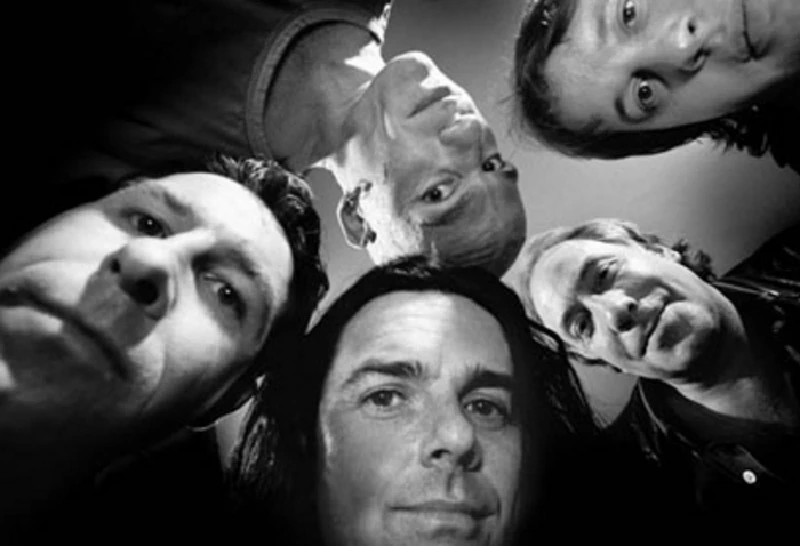
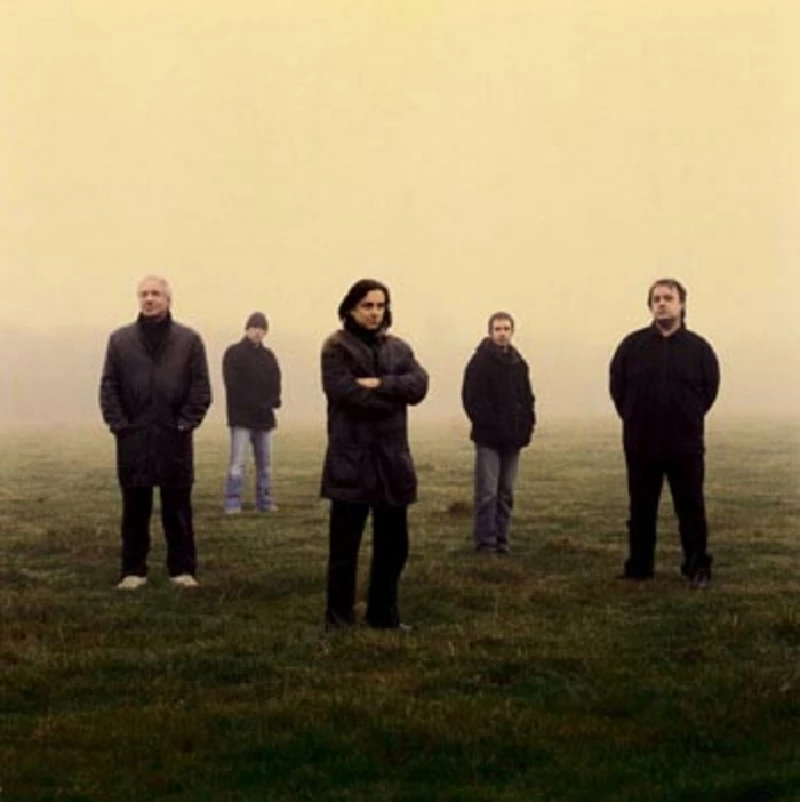
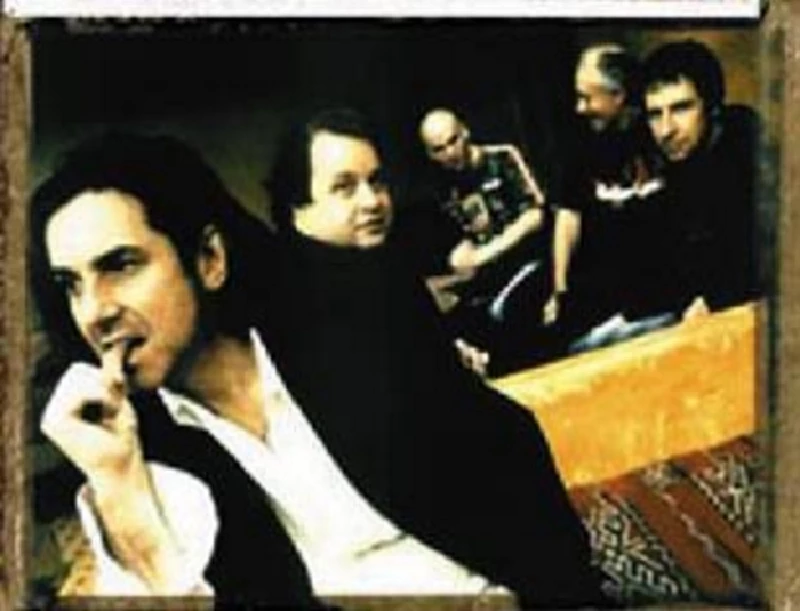
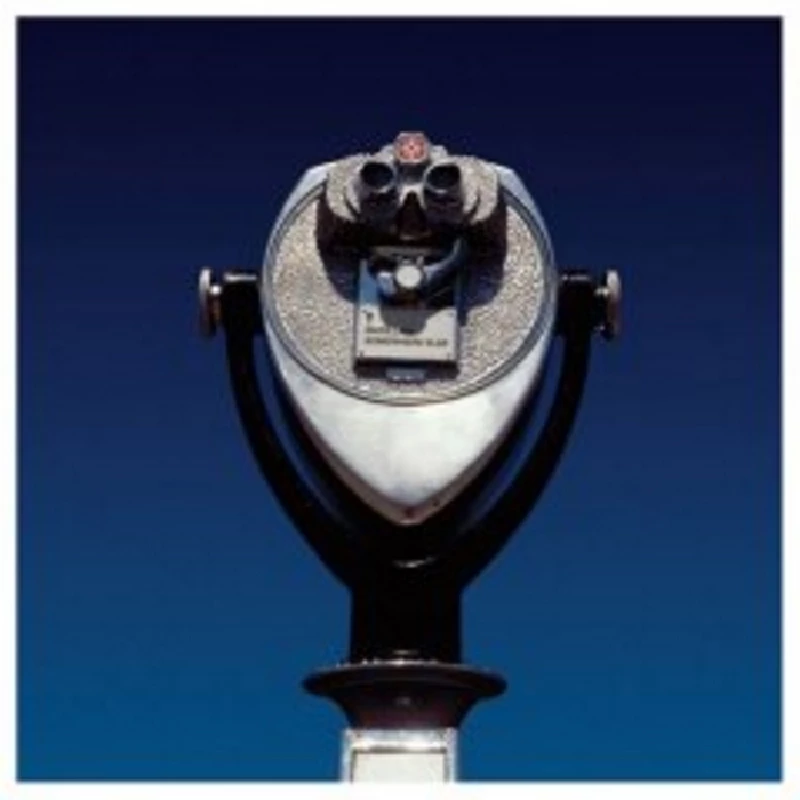
live reviews |
|
ABC, Glasgow, 5/6/2007 |
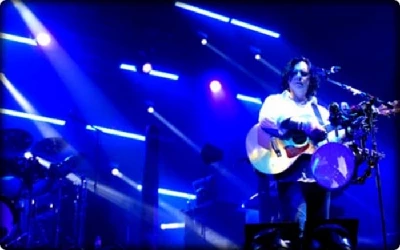
|
| In his first Mrillion gig in nearly 20 years, John Clarkson sees the often misunderstood rockers play a genuinely enthralling set at the ABC in Glasgow |
most viewed articles
current edition
Peter Doherty - Blackheath Halls, Blackheath and Palace Halls, Watford, 18/3/2025 and 21/3/2025Armory Show - Interview with Richard Jobson
Liz Mitchell - Interview
Deb Googe and Cara Tivey - Interview
Lauren Mayberry - Photoscapes
Max Bianco and the BlueHearts - Troubadour, London, 29/3/2025
Garfunkel and Garfunkel Jr. - Interview
Maarten Schiethart - Vinyl Stories
Clive Langer - Interview
Sukie Smith - Interview
previous editions
Heavenly - P.U.N.K. Girl EPBoomtown Rats - Ten Songs That Made Me Love....
Trudie Myerscough-Harris - Interview
Doris Brendel - Interview
Beautiful South - Ten Songs That Made Me Love...
Pulp - Ten Songs That Made Me Love...
Dwina Gibb - Interview
Kay Russell - Interview with Kay Russell
Barrie Barlow - Interview
Sound - Interview with Bi Marshall Part 1
most viewed reviews
current edition
Davey Woodward - Mumbo in the JumboNigel Stonier - Wolf Notes
Wings - Venus and Mars
Kate Daisy Grant and Nick Pynn - Songs For The Trees
Only Child - Holy Ghosts
Neil Campbell - The Turnaround
Philip Jeays - Victoria
Darkness - Dreams On Toast
Suzanne Vega - Flying With Angels
Charles Ellsworth - Cosmic Cannon Fodder
related articles |
|
Fish: Photography (2018 |
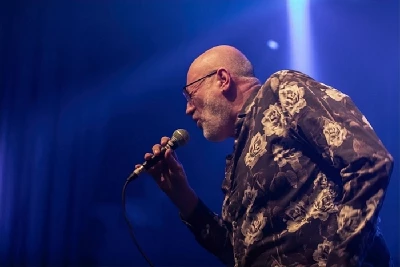
|
| Andrew Twambley photographs former Marillion front man Fish at a show at The Ritz in Manchester. |
| Fish: Interview (2015) |
| Fairport Convention: Live Review (2014) |
Pennyblackmusic Regular Contributors
Adrian Janes
Amanda J. Window
Andrew Twambley
Anthony Dhanendran
Benjamin Howarth
Cila Warncke
Daniel Cressey
Darren Aston
Dastardly
Dave Goodwin
Denzil Watson
Dominic B. Simpson
Eoghan Lyng
Fiona Hutchings
Harry Sherriff
Helen Tipping
Jamie Rowland
John Clarkson
Julie Cruickshank
Kimberly Bright
Lisa Torem
Maarten Schiethart